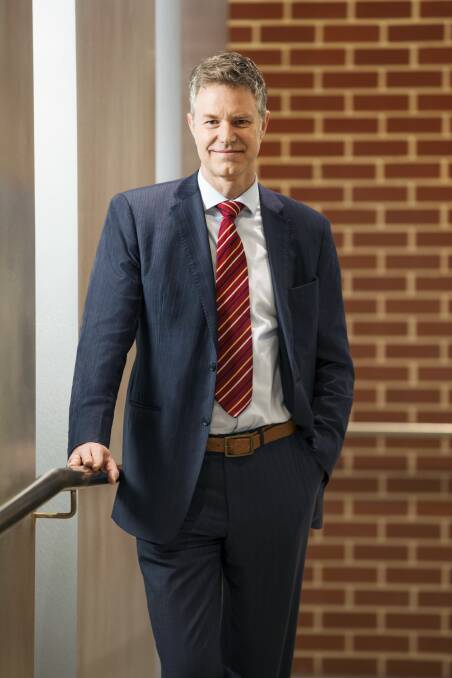
Dr Rob Grenfell considers the work he and his team are carrying out an honour. It's also exhausting.
Subscribe now for unlimited access.
or signup to continue reading
For the past few weeks, Dr Grenfell has led around 50 scientists working in Geelong to develop potential vaccines for the new strain of coronavirus, known as COVID-19.
The director of health and biosecurity at the Commonwealth Scientific and Industrial Research Organisation grew up in Longerenong, and spent nearly 13 years working as a general practitioner in Natimuk.
"We are part of a global effort, and we are working with and supported by a Norway-based organisation called the Coalition for Epidemic Preparedness Innovation," he said.
"The virus has been discovered, and we have grown that in our laboratory to analyse how it behaves in our animal test models, and now we are a couple of weeks away from trialling the first of three vaccine candidates in animal models.
"That will tell us if it works, if it's safe, and if they survive that awe will hand it over to the members of the human team that will be doing trials."
Dr Grenfell said CSIRO scientists had been working for a number of years to be ready for a pandemic such as COVID-19.
"When SARS and MERS hit, the team I manage had been working on the SARS virus and understanding how it behaved in animal models and also what potential actions we could take to manage and prevent it," he said.
"We also work on a range of other diseases - we've been doing Ebola vaccine work and ZIKA and NIPA, a pig to human virus which has yet to strike Australia. In that sense we have worked around diseases of extreme volatility, so when this one struck we were aware of the family involved in this virus. All that science that has been going on beforehand has been very helpful."
Dr Grenfell runs a team of 300 Australian and overseas-based scientists across the fields of eHealth, nutrition and genomics as well as biosecurity. He praised the "overdedicated" members of his team working around the clock to discover more about how COVID-19 behaves in the body.
"The time points of these studies can occur at any time of day or night," he said. "Obviously they are a dedicated science team that has been trained to do this, and so in one sense to do what you have been trained to is an honour that occurs in your career probably once."
Dr Grenfell urged people not to panic about the amount of information available about the virus.
"A new virus is behaving in ways that we are analysing in real time and we can only make our judgements and decisions on the best available information," he said.
"That's why it appears people may be evading answers to the questions, because none of us are sure.
"That creates a degree of panic, and I guess what we've seen with (people buying) toilet paper is that people think 'What can I do?'.
"One of the things I've been trying to put forward to people is as a country we can pull through this. We do have amazing strength and stamina but also amazing resources to pull on."
"I would probably say (people should) be more civil, particularly to those less fortunate than us - there are many people that will be missing out on food items because people have been stockpiling.
"The other one that is important is when people get a cold, they need to self-isolate. It doesn't matter whether they have had a test the virus or not, they should not be spreading those viruses around. We all have aged relatives or friends recovering from chronic diseases, they need us to behave in a civil way towards them, which is why we are cancelling events.
"The vaccine is still around 18 months away. We have some optimism about some drugs that might help those that are very sick, and we are working on new tests on how to test people, so there is optimism to be seen there. Unfortunately we can't invent these things, there is a time lag, so bear with us."
Dr Grenfell said he hoped his work would encourage Wimmera students to consider a career in science.
"Particularly those kids at Horsham College, I was learning in the same classrooms as they are," he said.
"It shows you can go through a country high school and find yourself in an important position. I think 'dare to dream' is the message - the next generation of scientists will take over on all of the stuff we are doing."
While you're with us, you can now receive updates straight to your inbox twice weekly from the Wimmera Mail-Times. To make sure you're up-to-date with all the news from across the Wimmera, sign up below.


